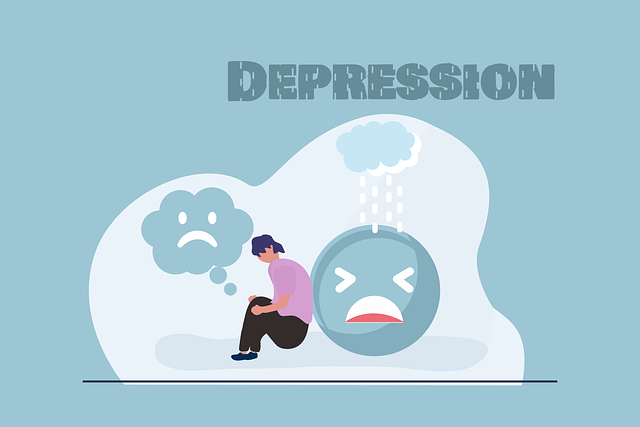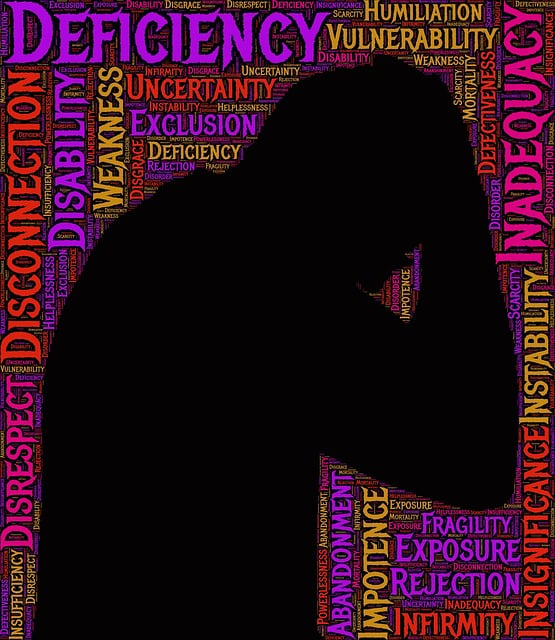Mental wellness coaching offers a holistic approach to personal growth by empowering individuals to overcome challenges through skill development, behavior modification, and enhanced communication skills. This modern method addresses Centennial Couples Communication Issues, which significantly impact mental wellness, leading to stress, anxiety, and depression. Coaches use techniques from Centennial Couples Communication Issues therapy like mindfulness meditation to improve emotional awareness and foster stronger connections. Integrating Centennial Values strengthens the coach-client bond and enhances risk assessment for proactive depression prevention. Effective coaching sessions prioritize active listening, open dialogue, and clear goals tailored to each couple's unique needs. Evaluating programs through pre-and post-assessments with standardized questionnaires measures tangible improvements in areas like anxiety, depression, and interpersonal communication skills.
Mental wellness coaching programs have emerged as a modern approach to personal growth, offering support and guidance in navigating life’s challenges. This article delves into the development of such programs, focusing on understanding mental wellness coaching, identifying communication issues in couples therapy, integrating centennial values for trust-building, designing effective coaching sessions, and evaluating program success. By exploring these key areas, we aim to enhance the effectiveness of mental wellness coaching in addressing relationship challenges and fostering personal growth.
- Understanding Mental Wellness Coaching: A Modern Approach to Personal Growth
- Identifying Common Communication Issues in Couples Therapy and Their Impact
- Integrating Centennial Values into Coaching Programs: Fostering Connection and Trust
- Designing Effective Coaching Sessions for Addressing Relationship Challenges
- Measuring Success: Evaluation Methods for Mental Wellness Coaching Programs
Understanding Mental Wellness Coaching: A Modern Approach to Personal Growth

Mental wellness coaching is a modern approach to personal growth that focuses on empowering individuals to navigate and overcome challenges in their lives. Unlike traditional therapy, which often involves addressing specific mental health disorders, wellness coaching targets overall emotional well-being. Coaches work collaboratively with clients, helping them identify areas of improvement and develop actionable plans for achieving personal goals. This holistic process considers the interconnectedness of mental, physical, and social aspects, fostering a supportive environment for sustainable change.
By integrating techniques from mental health education programs design, wellness coaches promote emotional well-being through skill development and behavior modification. They assist clients in managing mood, cultivating positive thinking patterns, and enhancing communication skills, particularly in relationships, as issues like Centennial Couples Communication can significantly impact overall mental wellness. Through tailored strategies, coaches enable individuals to build resilience, boost self-confidence, and lead more fulfilling lives, ultimately contributing to a happier and healthier society.
Identifying Common Communication Issues in Couples Therapy and Their Impact

In couples therapy, identifying common communication issues is paramount for fostering healthy relationships. Misunderstandings and unproductive dialogue patterns often emerge as the root causes of relationship challenges. These issues can range from failure to express emotions effectively to defensive or dismissive behaviors during conversations. For instance, one partner might struggle with sharing their feelings openly, while the other may respond in a way that shuts down further communication. Such dynamics can create a cycle of frustration and distance.
The impact of these communication issues is profound, affecting not just the couple’s interactions but also their overall mental wellness. Unresolved conflicts can lead to increased stress, anxiety, and even depression. Moreover, they may hinder the development of self-care practices and limit access to crisis intervention guidance when needed. Incorporating mindfulness meditation techniques into therapy has shown promise in improving communication by promoting active listening and emotional awareness—key elements for building stronger connections and navigating relationships more effectively.
Integrating Centennial Values into Coaching Programs: Fostering Connection and Trust

Integrating Centennial Values into coaching programs offers a unique opportunity to foster deep connection and trust between coaches and clients. By incorporating principles such as open communication, mutual respect, and shared responsibility, therapists can create a safe and supportive environment that encourages vulnerability and honest expression. This approach, grounded in effective therapy techniques like Centennial Couples Communication Issues, promotes resilience building among individuals seeking mental wellness coaching.
Furthermore, integrating these values enhances the risk assessment process for mental health professionals by fostering an empathetic understanding of clients’ challenges. Recognizing the interconnectedness of psychological well-being and social connections, coaches can proactively address potential issues related to depression prevention. Through this holistic approach, coaching programs become more effective in nurturing lasting change and positive outcomes for individuals navigating their mental health journeys.
Designing Effective Coaching Sessions for Addressing Relationship Challenges

Effective coaching sessions addressing relationship challenges should incorporate active listening and open dialogue, fostering a safe space for couples to express their issues honestly. Utilizing Mind Over Matter principles, coaches can help partners gain new perspectives on communication issues, encouraging them to reframe negative interactions as opportunities for growth. Each session should be structured with clear goals, tailored to the unique needs of the couple, and incorporate practical strategies they can implement immediately post-session.
Risk management planning is crucial for mental health professionals facilitating these sensitive conversations. By establishing boundaries, setting expectations, and having protocols in place for addressing emotional triggers or crises, coaches ensure both their own well-being and that of their clients. This proactive approach not only enhances the effectiveness of coaching but also contributes to a healthier, more positive therapeutic environment conducive to addressing Centennial couples’ communication issues effectively.
Measuring Success: Evaluation Methods for Mental Wellness Coaching Programs

Evaluating the success and impact of mental wellness coaching programs is a crucial step in ensuring their effectiveness. Measuring success goes beyond simple client satisfaction; it involves assessing tangible improvements in clients’ mental health and daily lives. One effective method is through pre-and post-program assessments, where participants are given standardized questionnaires to gauge their initial state and track changes over time. These assessments can cover various aspects such as anxiety levels, depression symptoms, stress management, and interpersonal communication skills.
For instance, a study focusing on Centennial Couples with communication issues might employ a structured interview and self-report measures post-program. The evaluation could include questions about their relationship dynamics, coping strategies used, and perceived improvements in mental wellness. Additionally, qualitative feedback from clients through open-ended surveys provides valuable insights into their experiences, highlighting specific areas of program strength or suggesting areas for refinement, thereby enhancing the overall design of Mental Health Education Programs and contributing to better Self-Care Routine Development for Better Mental Health.
Mental wellness coaching programs, enriched by an understanding of communication dynamics and integration of centennial values, offer a promising path toward personal growth and improved relationships. By addressing common couples’ communication issues through tailored coaching sessions, these programs foster connection and trust, ultimately enhancing mental wellness. Effective evaluation methods ensure success, allowing for continuous improvement and adaptation to meet the evolving needs of individuals seeking support. This modern approach combines empathy, evidence-based strategies, and a holistic perspective to empower people on their journey toward well-being.














